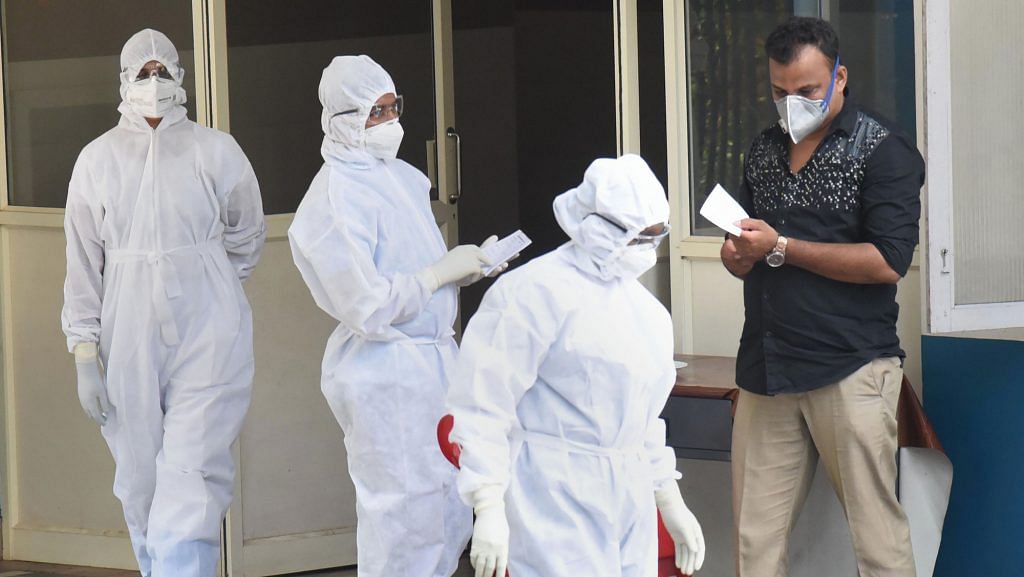New Delhi: Private hospitals have asked the Prime Minister Narendra Modi-led government to give “armed forces martyrs” status to healthcare workers in case of their death while handling COVID-19 cases.
The government on 19 March conducted a meeting with private healthcare providers to assess how prepared they are to handle the coronavirus outbreak.
The meeting was chaired by Preeti Sudan, secretary in health & family welfare ministry. During the discussion, private hospitals represented by the Association of Healthcare Providers, India (AHPI), told the government that “in unforeseen circumstances, if there is casualty among healthcare workers, they should be treated at par with armed forces martyrs.”
The private hospitals include Fortis Healthcare, Max Healthcare, Narayana Health and Medanta. AHPI represents 2,500 speciality and 8,000 smaller hospitals across India.
This was also reiterated in a letter summarising the recommendations made during the meeting and sent to the government by AHPI Friday. ThePrint has accessed a copy of the letter.
Use some hospitals as isolation wards
Hospitals have also proposed to convert some of their less popular branches into COVID-19 isolation centres.
“The mixing up of COVID-19 patients in the same hospital may also pose a risk for the immune critical patients in the hospital. Instead, AHPI will like to suggest identifying some number of hospitals providing requisite number of beds and convert them into COVID hospitals,” states the letter that has been signed by Girdhar J. Gyani, director general, AHPI.
The letter further says, “This will also help in providing focused care through trained manpower. Converting of hospitals may begin right away as this may require provisioning of piped oxygen, suction and compressed air etc.”
The idea is to convert the less popular hospitals into coronavirus isolation wards. “There are some hospitals which are less popular and generally have 30-40 per cent bed occupancy. These hospitals could be used,” Giani told ThePrint.
Also read: These 5 anti-viral drugs and therapies could help treat COVID-19
Students, freshers as healthcare staff
The lobby has further suggested deploying post-graduate students, interns and final year MBBS and nursing students at COVID-19 ICUs as part of their training.
“This is necessary as doctors and nurses will not be able to work for more than a week at a stretch,” the letter states.
It also suggests deploying foreign-trained doctors who are still awaiting Foreign Medical Graduates Examination (FMGE). FMGE is a screening test, which is essential to get a license for practicing medicine in India.
Government readies fresh strategy
Meanwhile, with the number of coronavirus cases on the rise, the Modi government has decided to alter its strategy.
Now, the government will admit and test all suspected patients of COVID-19, unlike earlier when only those with a travel or contact history were considered for testing.
According to the latest advisory issued by the health ministry Friday, “All hospitals should mobilize additional resources including masks, gloves and personal protection equipment, anticipating the influx of patients.”
“Healthcare personnel should be trained for dealing with any foreseeable emergencies,” it said.
It further adds, “All doctors, nurses and support staff in different specialties, including pre and para clinical departments, should be mobilized and trained in infection prevention and control practices.”
Also read: Govt gives Rs 15,000-cr boost to API and devices industry to check shortage amid COVID-19
